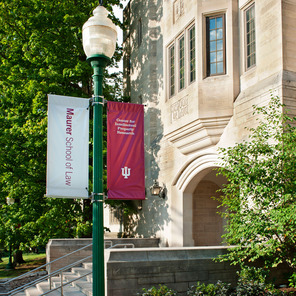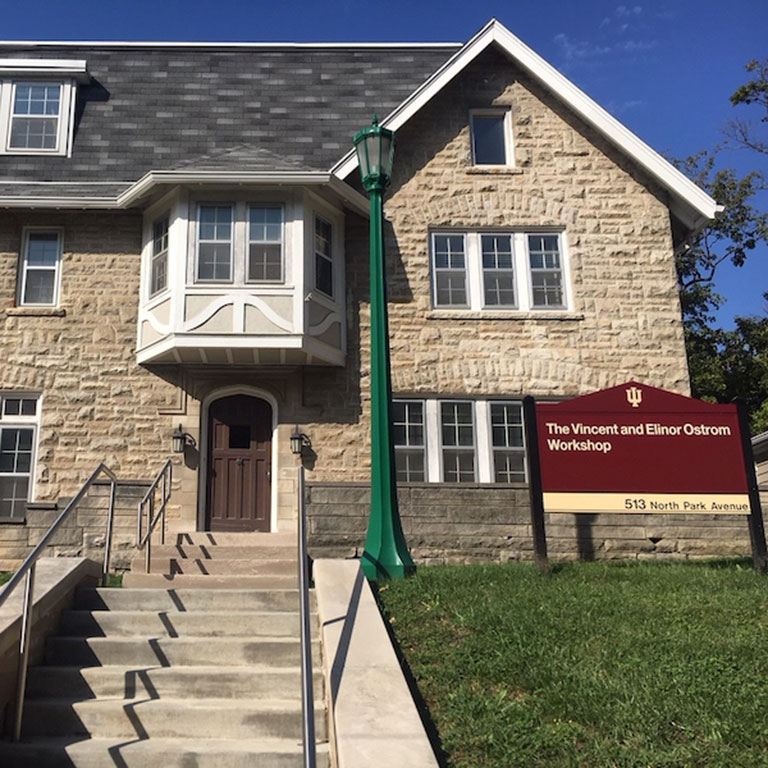
2021–Present
Bloomington, Indiana

Address : |
211 South Indiana Avenue, |
Phone : |
(812) 856-5465 |
Email : |
jmarinot at iu dot edu |
I’m an an Associate Professor of law at the Indiana University Maurer School of Law, an Affiliated Fellow at the Yale Law School Information Society Project, and an Affiliate at the Maurer School of Law Center for IP Research. He conducts research in the areas of law and technology, law and linguistics, property law, and private law theory.
My recent research topics include:
- The effects of blockchain, virtual reality, and the metaverse on law and society;
- The evolution and application of private law norms in the face of rapidly changing conceptualizations of technology; and
- The emerging judicial methods of legal interpretation, including corpus linguistics and algorithmic approaches to legal language.
What does ownership mean in the context of digital assets, crypto assets, IoT devices, or ideas? Can private law theory and property law answer these questions?
How will the Metaverse change our perception of work, life, relationships, and things? Will blockchain truely protect purchases, assets, and transactions?
What do words, sentences, and laws mean? Who gets to decide? Can quantitative methods or AI-aided methods help interpret legal texts?
Is there a fair and scalable way to moderate content on social platforms? What do we mean by fair in the first place? How will this work in the Metaverse?
I’m the faculty director of the Legal Data & Visualization Lab where I work with and mentor students who want to (learn to) use Python, the Caselaw Access Project, and Data Wrapper to answer quantitative legal questions using NLP and statistics.
I am passionate about my work on my faculty’s Diversity & Inclusion Committee. I am also the faculty supervisor of OUTLaw, the student alliance working to promote equal rights and protect against discrimination based on sexual orientation and gender.
Take a look at some of my recent work.
The concept of possession is currently seen by many as inapplicable to intangible assets, whether data, cryptocurrency, or NFTs. Under this view, intangible assets categorically fall outside the purview of property law’s foundational doctrines. This Article dissects the relationship between property, possession, and thinghood, deriving a new tech-neutral theoretical model of possession grounded in information theory. By unpacking the process through which the social institution of property emerges, this Article provides the rationale for a new theory of possession.
Data is not monolithic. Nonetheless, the word is frequently used indiscriminately—in reference to a number of distinct concepts. Despite this diversity, the singular concept of data trusts is promulgated as a solution to our collective data governance problems. Unfortunately, American trust law does not allow for the existence of such general data trusts. If anything, the judicial, academic, and legislative confusion regarding data rights—or data’ s status as property—demonstrates that discussions of data trusts may be ignoring a key element. Ultimately, this essay highlights the urgent need to pursue doctrinally, legislatively, and technologically viable data governance strategies.
The prevailing but legally problematic narrative among crypto enthusiasts is that NFTs allow true ownership of digital items in the metaverse for two reasons: decentralization and interoperability. These two technological features have led some to claim that tokens provide indisputable proof of ownership, which can be used across various metaverse apps, environments and games. Despite these claims, the legal status of virtual “owners” is significantly more complicated. In fact, the current ownership of metaverse assets is not governed by property law at all, but rather by contract law. As a legal scholar who studies property law, tech policy, and legal ownership, I believe that what many companies are calling “owners” in the metaverse is not the same as ownership in the physical world, and consumers are at risk of being swindled.

2021–Present
Bloomington, Indiana

2020–Present
New Haven, Connecticut

2020–Present
Indiana University, Bloomington, IN

Center for Intellectual Property Research
Indiana University
Bloomington, IN